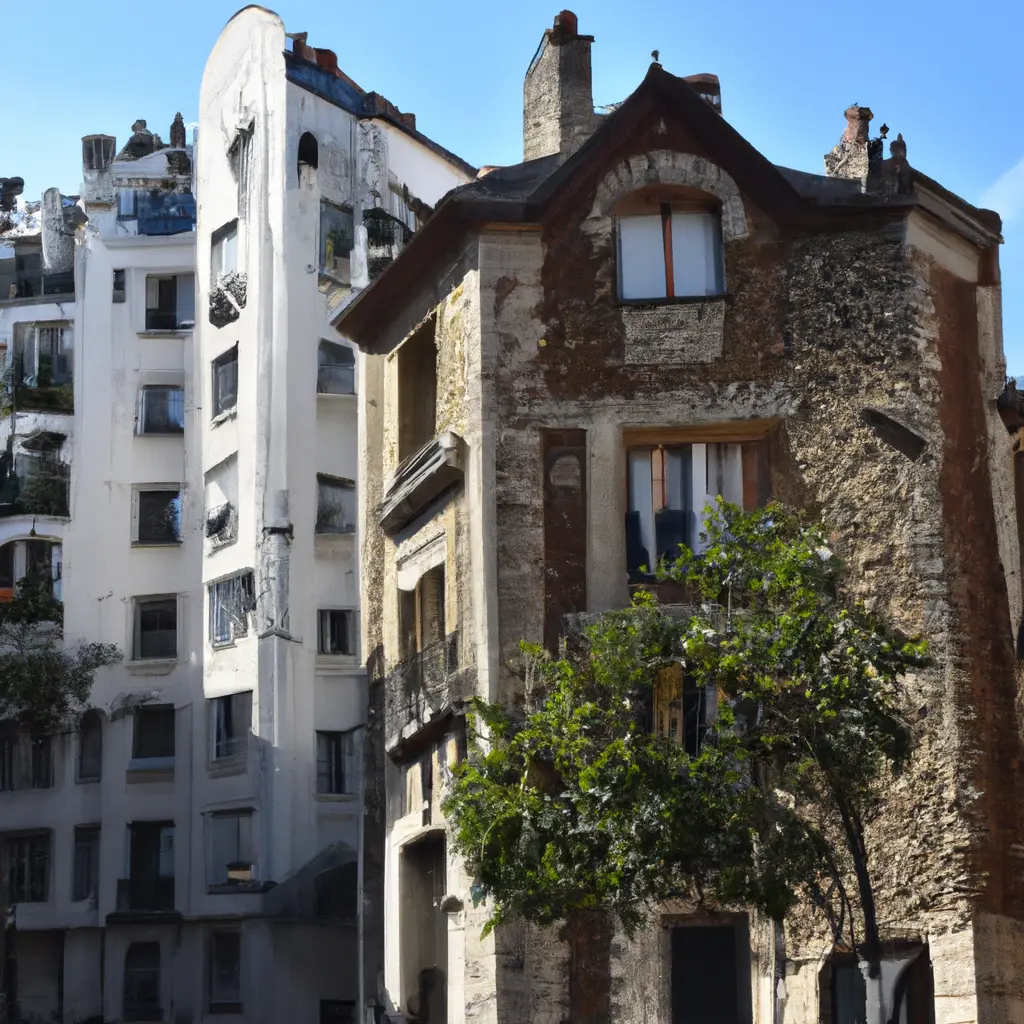The French real estate price crash: slowing old sales and hope for a smooth transition remains..

The French real estate market is showing signs of slowing down. Photo: Gabriela Beres / Shutterstock
The real estate market in France is showing signs of slowing down after five years of growth, due to rising interest rates and stricter lending requirements, which are reducing demand for sales. The increase in prices for secondary housing slowed down in the second quarter, and real estate developers reported a sharp decline in demand for new housing in October, according to data from the National Institute of Statistics and Economic Studies of France.
What are the prospects for the French real estate market? Is there a possibility that the market will crash in the future? Read on to learn more.
What is a real estate market crash?
In real estate markets, prices typically rise and fall in cycles. Bubbles form when average property prices rise above their fundamental value, which can lead to a market cool-down or even a crash if prices drop sharply, bursting the bubble. Bubbles in the real estate market can be caused by excessive demand, fueled by government policies such as low interest rates or excessive lending. When economic conditions change and mortgages become less accessible, property owners may be forced to sell, increasing supply in the market and reducing demand. The French real estate market experienced a decade-long boom from 1997 until the global real estate crash in 2007, when prices surged by 150%. The bubble in the French real estate market ended in 2008, when the market witnessed a moderate decline in prices. Housing prices fell at an average annual rate of 1.7% from 2012 to 2015, and then began to rise again in 2016. Mortgages in France are primarily based on fixed interest rates, which contributes to market stability and reduces the likelihood of a housing price crash in France.
13 May 2025
14 May 2025
14 May 2025




Will there be a collapse in housing prices in France?
As in other countries, housing prices in France rose during the Covid-19 pandemic. The index of prices for new and old housing, published by the National Institute of Statistics and Economic Studies of France (Insee), increased from 112.7 in the fourth quarter of 2019 to 119.30 in the fourth quarter of 2020, marking the fastest growth rate since 2010, and continued to rise to 127.5 in the fourth quarter of 2021 and 130.8 in the second quarter of this year.
What is causing the slowdown in housing price growth in France?
Housing prices in the metropolitan area of France continued to rise in the second quarter, increasing by 1.5% compared to the first quarter, when they grew by 1.4%, according to Insee data. Prices for new housing rose by 3.2% after a 0.1% increase in the first quarter, while prices for secondary housing increased by 1.3% after a 1.7% rise in the previous quarter. Compared to the same period last year, prices have risen by 6.7% since the second quarter of 2021, following a 7% year-on-year increase in the previous quarter. Prices for old housing increased by 6.8% year-on-year, while prices for new housing rose by 6.3%. Prices for premium real estate in France grew at a record pace of around 6% in 2021, and the volume of residential property sales exceeded the 10-year average by 31%, according to the British real estate agency Knight Frank.
Prospects of the French real estate market
Sales activity is expected to be healthy but more restrained in 2022, following a slight slowdown in sales during the first half of the year. The conflict between Russia and Ukraine has heightened uncertainty and will affect consumer sentiment in light of sharp inflation increases and tighter financing conditions. As of the time of writing (November 23), the economic data provider Trading Economics predicted that the French real estate market index would drop to 130 by the end of the year, down from 130.78 in the third quarter, and then rise to 136 points in 2023, based on its effective models. The banking group BPCE anticipates a "significant reduction in residential real estate transactions, with a 5% decline in existing housing transactions in 2022 and a 9% decline in 2023, exacerbated by a decrease in new construction starts in 2023 due to the challenging implementation of restrictions imposed by the RE2020 regulations, related to supply disruptions, rising costs, and increasing difficulties in obtaining building permits in urban areas. BPCE predicts that prices may decrease next year, noting: "...the cumulative impact of rising interest rates, declining household purchasing power, and the implementation of energy regulations should lead to a reduction in average housing prices of about 3% in 2023. In fact, the increase in interest rates raises questions about price levels not only in trends but also in the overall maintenance of household solvency."
Ultimately, whether there will be a collapse in housing prices in France may depend on the extent of the economic downturn and the impact of inflation, interest rates, and currency exchange rates on buyers. As BPCE noted in July: "The middle class increasingly shares the pessimistic viewpoint of low-income individuals, indicating that people will think longer and harder before making a purchase or even decide to postpone their real estate projects." The inflation shock, rising interest rates, and the implementation of energy regulations in France could "lead to long-term changes in the market." If you are looking for forecasts on real estate prices in France to make informed investment or trading decisions, we recommend studying the latest market trends, news, and technical analysis.
Comment
Popular Offers

Subscribe to the newsletter from Hatamatata.com!
Subscribe to the newsletter from Hatamatata.com!
I agree to the processing of personal data and confidentiality rules of Hatamatata










